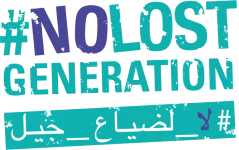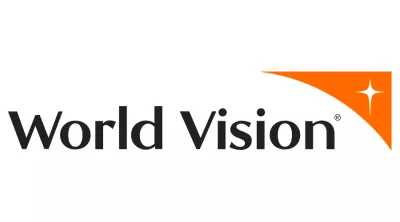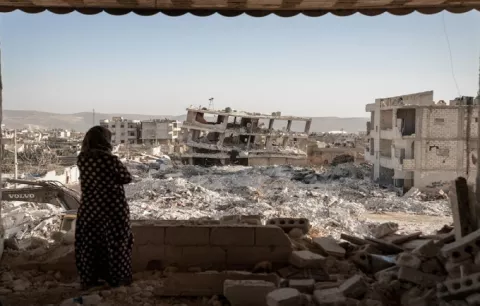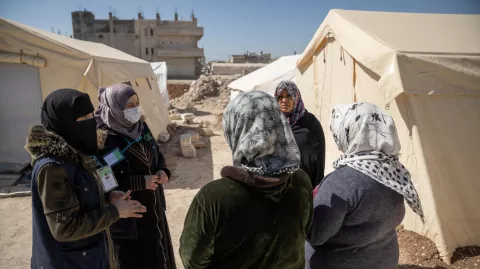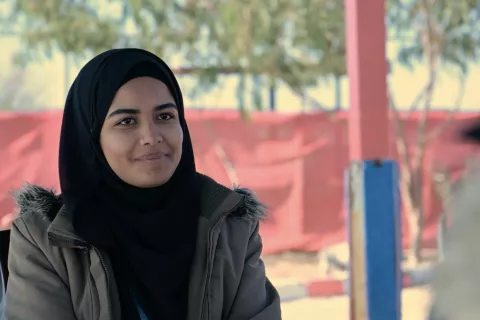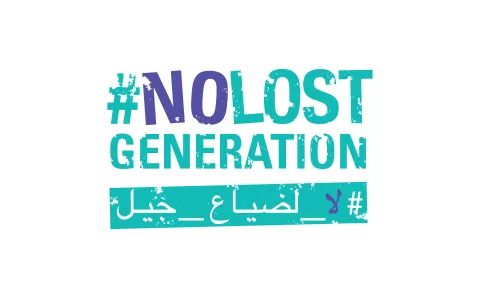Making spaces more inclusive for women and girls with disabilities in Northwest Syria
World Vision International
No Lost Generation is marking the 10th year of crisis inside Syria with a series of blog posts shedding light on the comparative situation of children. Publishing one blog post a day, we will underline the needs of children and youth affected by the Syrian crisis and share the experience of our partners responding to their plight. We need to redouble our efforts and rethink our interventions, to shape a better future for 10.7 million children.
Women and girls with disabilities in northern Syria face a disproportionate number of hurdles compared to their male peers. Not only has the decade-long conflict in Syria increased the number of persons with disabilities1, it has created greater hardships for the vulnerable population, according to the United Nations Office for the Coordination of Humanitarian Affairs (OCHA).
Inside Syria alone, more than 25% of the population, those 12 years and older, are living with disabilities2. This cohort also faces increased protection risks and infection from COVID-19 due to their interactions and reliance on caregivers and assistants. In Idleb, women account for 30% of those with disabilities and 26% in Aleppo.
Women and girls with disabilities are at a higher risk of facing gender-based violence, domestic, physical, and emotional abuse, which do not allow for the realisation of their human rights3.
There are barriers for them to access services; They told us that they faced issues from lacking access to information and services including outreach and community centres, to transportation, which men with disabilities face less. “Hundreds of people with disabilities [including myself] were forgotten in times of peace. We can’t even get to the sites where aid is distributed,” said a 21-year-old Syrian woman with cerebral palsy4.
We need to think not only how we can improve the lives of women and girls with disabilities, but also find ways to ensure their voices are heard and they are included in decision-making
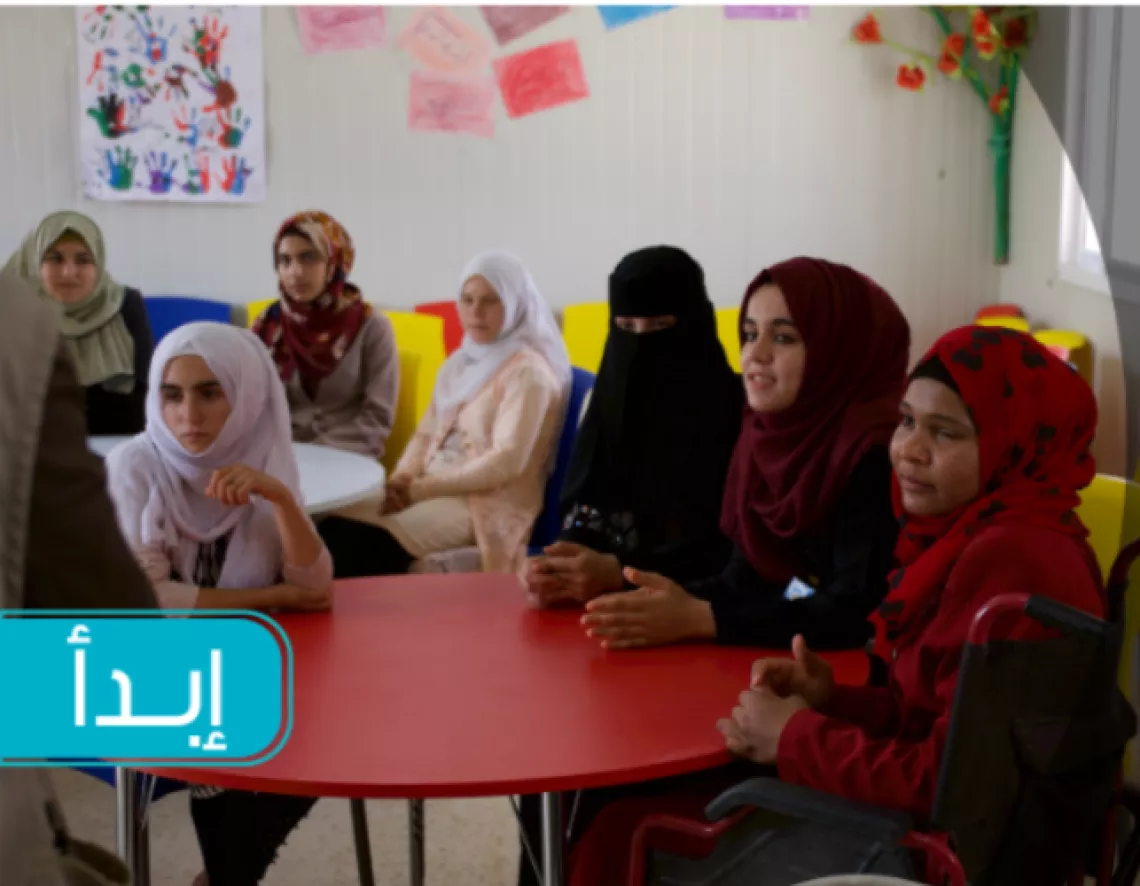
There is also the idea in the community that people with disabilities do not have their own independence, which is even more evident for women and girls. Stigma and negative attitudes hinder their potential and full realisation of rights5 and they experience that within their homes, schools, at a community level and going up to national institutions like health services and the judiciary. It was reported that staff capacity and prejudices were prominent toward people with disabilities, whether they were men or women. A Syrian doctor working in Turkey commented: “Neglect and lack of psychological help most likely would leave permanent psychological scars, especially on those who became impaired by the war.6”
International aid agencies must increase their programming to empower and uplift women and girls with disabilities to ensure inclusion for this vulnerable population. Increased awareness and educational resources are needed to help train and support families of girls and women with disabilities to ensure their independence and inclusion.
Considering whether physical sites are accessible for the vulnerable communities, it would be of extreme importance to explore the possibility of home visits and to provide home-based activities or individualised case management. Such steps were deemed to be effective by the Women’s Refugee Commission and International Rescue Committee. Now, the only move to make is to do more.
With regards to disability stigma, there is a high need for international aid agencies to work more effectively to eliminate it within the society since it is prevalent in such vulnerable contexts. We need to think of not only how we can improve the lives of women and girls with disabilities, but also find ways to ensure their voices are heard and are included in decision-making. Tackling disability stigma across all those layers of society whether at the national level or within the household and community is crucial. Exclusion from programmatic implementations and consultations undermines the intended impact of programmes and reinforces discrimination which compounds the vulnerability of these people.
World Vision International works with several clusters and working groups to promote disability inclusion in northern Syria. We have seen success. More than 3,000 Syrians have attended a World Vision-sponsored training Making Spaces More Inclusive for Women and Girls in Northwest Syria. Thanks to trainings and workshops provided in these safe places on disability inclusion, centres have become more sensitive and aware of the increasing needs of women and girls. Over 3,000 social workers have also registered in our inclusion course. “We have witnessed more women and girls coming to the centre and participating in our activities,” says one staffer at World Vision. Another social worker who works in one of these centres weighs in: “The trainings are excellent, they make you feel with those with permanent disabilities. It makes them feel valued and enhances their self-worth and independence”.
Such concepts that work to empower women and girls with disabilities command attention and must be expanded, covering every programme that is implemented in field work. There is still a considerable need to focus on eliminating gender-based violence for women and girls, especially those who have a disability, as they are the most vulnerable.
1 https://reliefweb.int/sites/reliefweb.int/files/resources/inclusive_wash_nwsyria_covid_2021_.pdf
2 https://reliefweb.int/sites/reliefweb.int/files/resources/inclusive_wash_nwsyria_covid_2021_.pdf
4 https://apnews.com/article/c8f04ec791b245f88864665406d7b51e
5 https://reliefweb.int/report/world/women-and-girls-disabilities-must-not-be-excluded
6 Disabled Victims Are Syrian War's Most Vulnerable (voanews.com)
World Vision International co-chairs the No Lost Generation with UNICEF. World Vision is a Christian relief, development and advocacy organisation and the largest child-focused private charity in the world. Our over 37 000 staff members working in nearly 100 countries have united with our incredible supporters to impact the lives of over 200 million vulnerable children by tackling the root causes of poverty. For more information about World Vision and its work, visit World Vision Syria Crisis Response and on Facebook, Twitter, and YouTube.
